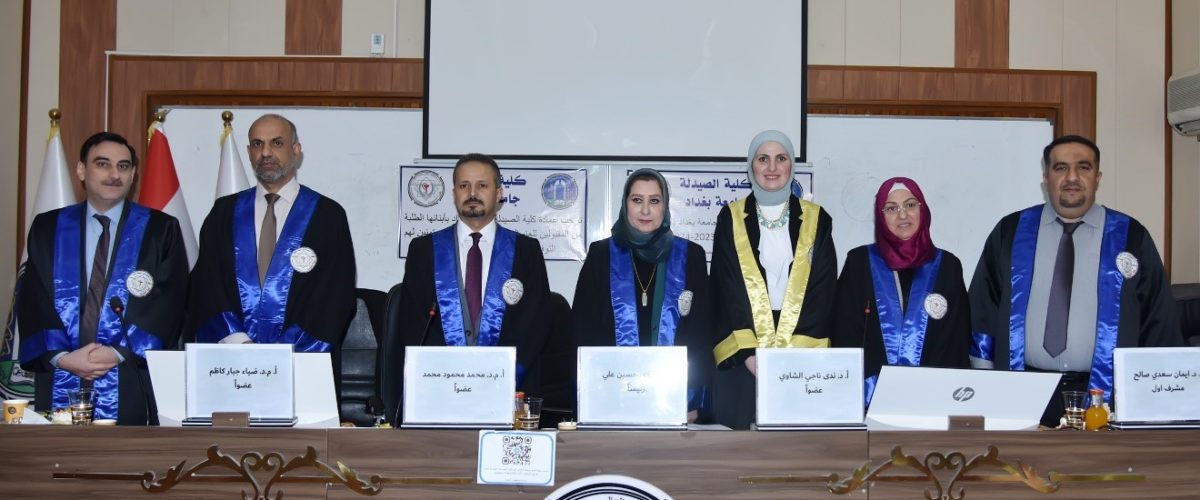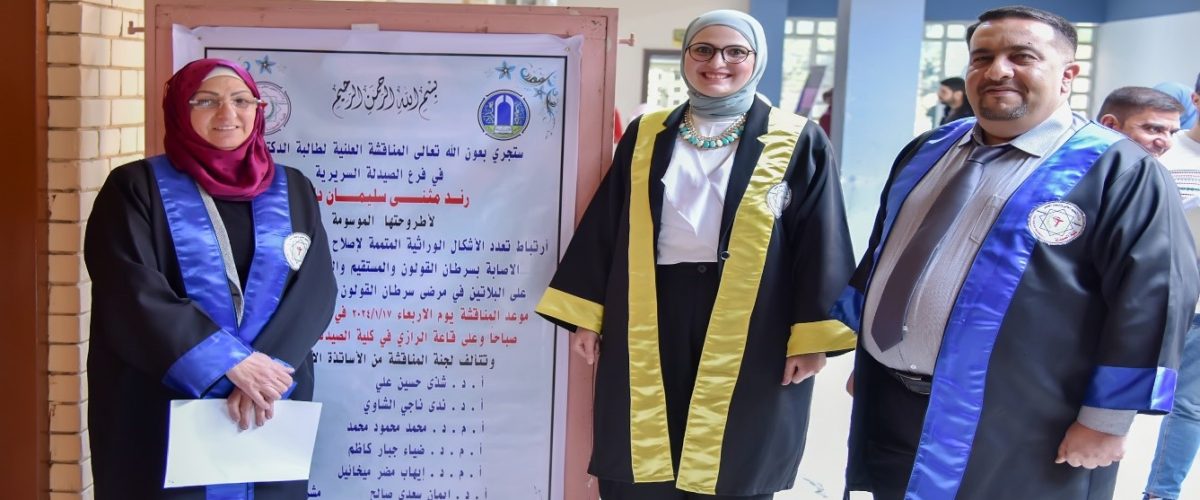The College of Pharmacy discussed the PhD dissertation entitled (Association of Excision Repair Cross-Complementing Group 2 Genetic Polymorphisms with Colorectal Cancer Susceptibility and Toxicity to Oxaliplatin-Based Regimen in Iraqi Colorectal Cancer Patients) by Rand Muthanna Sulaiman and her supervisors, Professor Dr. Eman Saadi Saleh and Dr. Ahmed Zuhair Adbulhameed, at the Clinical Pharmacy Department. The study aimed to detect the prevalence of Excision Repair Cross-Complementing Group 2 genetic polymorphisms (rs13181, rs238406, and rs1799793) in Iraqi colorectal cancer patients compared to healthy individuals and examine the influence of these polymorphisms on colorectal cancer susceptibility. In addition, assess the relationship between the different genotypes of Excision Repair Cross-Complementing Group 2 polymorphisms and the toxicity of an oxaliplatin-based regimen. The results showed a significant relationship between the heterozygous genotype of rs149943175 and colorectal cancer susceptibility. Moreover, there was a negative tendency in patients carrying the GA genotype who are female, non-smokers, and have a body mass index less than 25 kg/m2. In addition, the rs530662943 GA genotype was associated with increased colorectal cancer risk. The presence of heterozygous genotypes of rs149943175 decreases the risk of colorectal cancer development, while carriers of the GA genotype of rs530662943 increase the risk of colorectal cancer emergence. No evidence of a relationship was found between the rs13181, rs149943175, rs530662943, and rs238406 genotypes with hematologic and non-hematologic toxicity.




